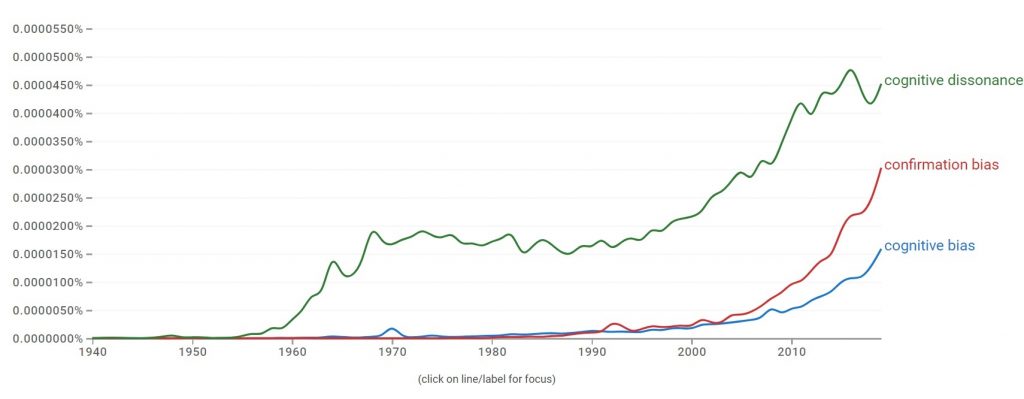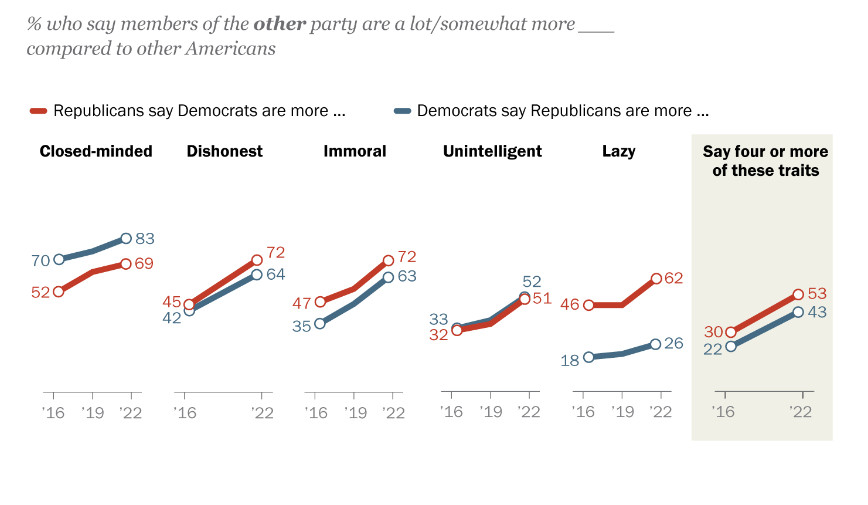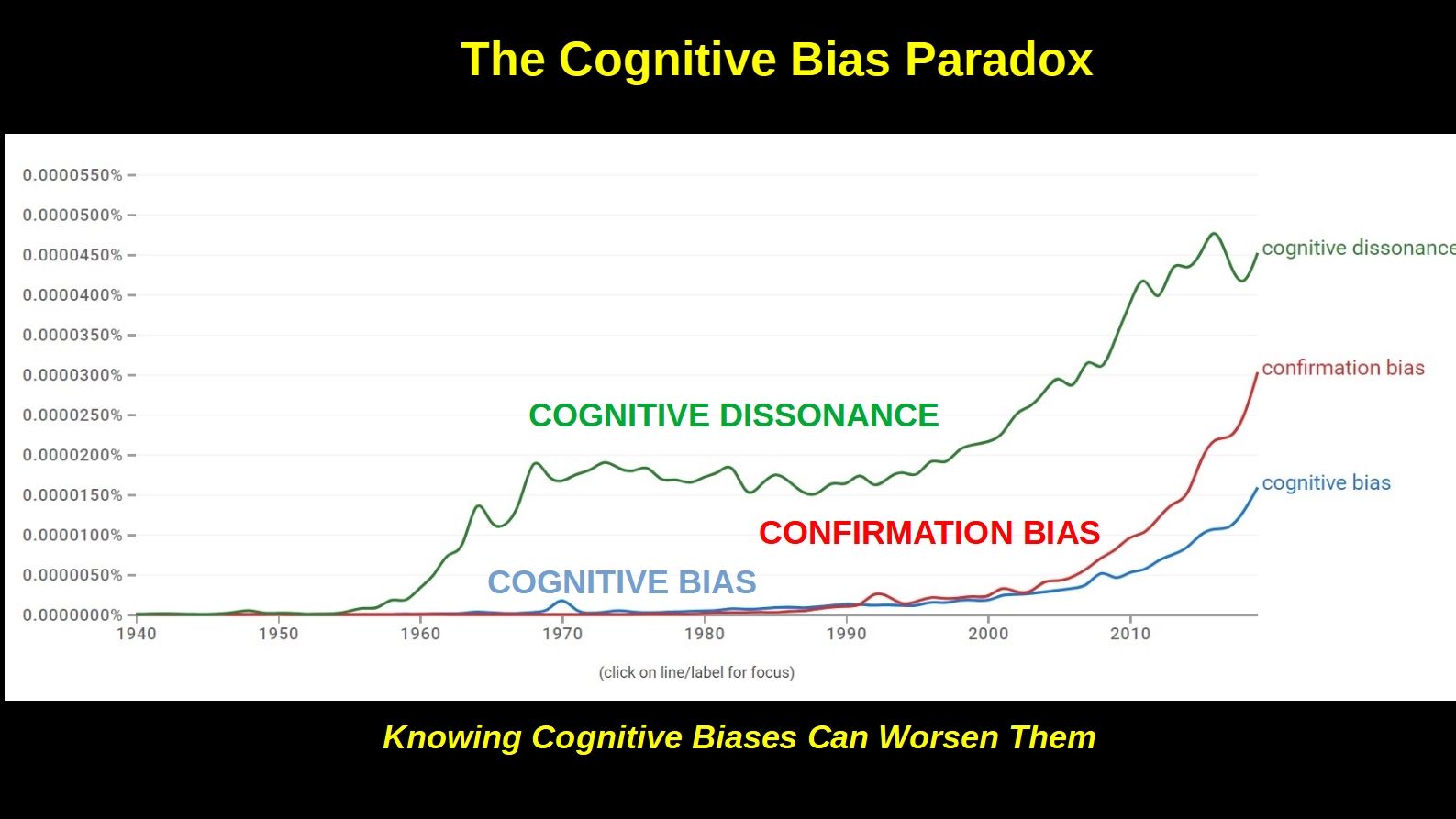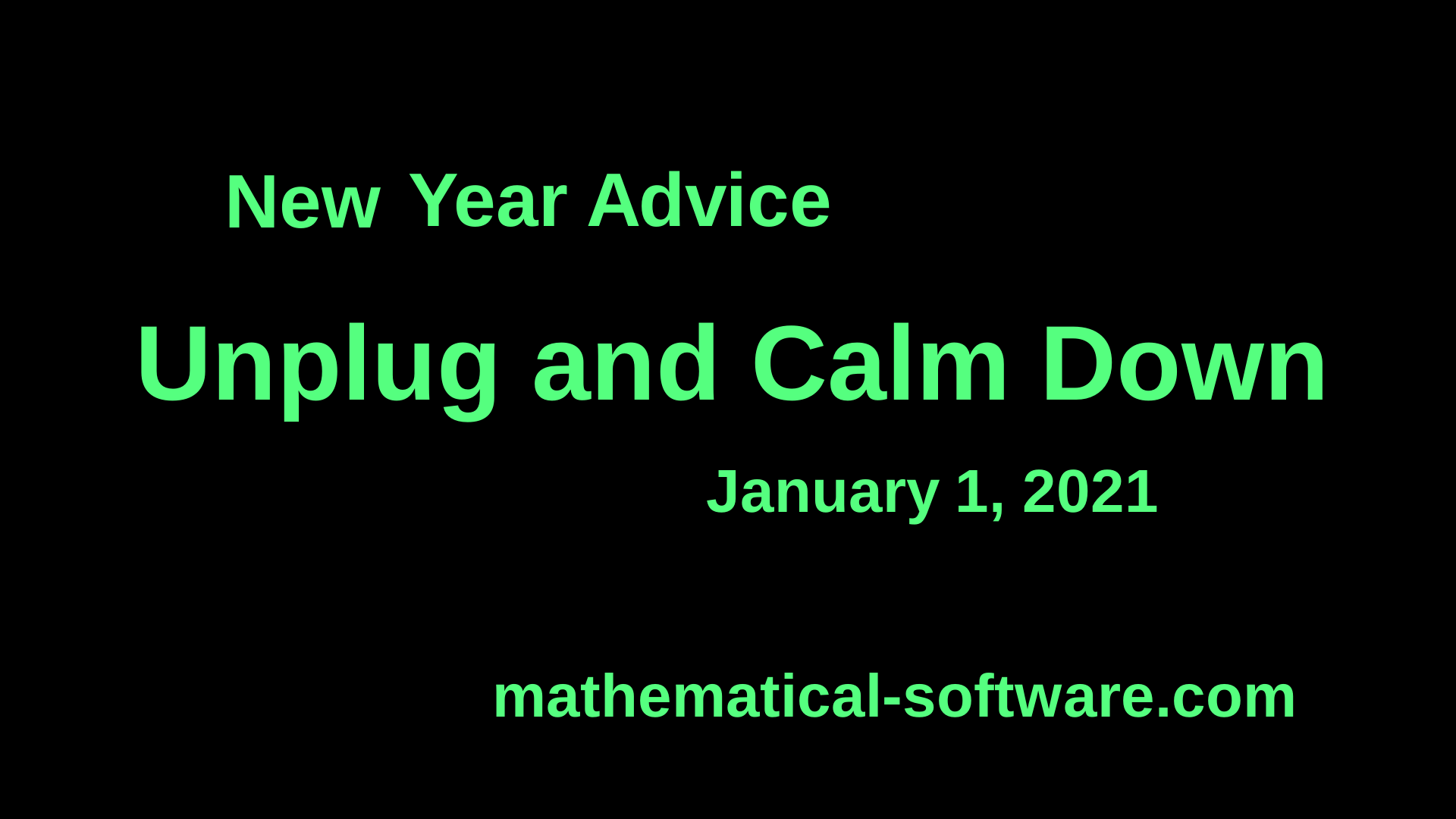Knowing cognitive biases can worsen them. Paradoxically, detailed knowledge of cognitive biases such as “confirmation bias” and “cognitive dissonance” provides a powerful set of tools to reinforce these very biases and dismiss data, evidence, and even direct personal experiences that contradict our preconceived ideas and prejudices.
In practice, one thinks:
I am one of the special intelligent, educated elite who are well aware of the cognitive biases. Knowing the biases, I am able to compensate for them, for example through ‘steelmanning‘ my opponent’s arguments. In contrast, the data or evidence from any third party contradicting my evidence-based beliefs is clearly the product of cognitive biases X,Y, and Z leading to cherry picking of evidence, faulty statistical methodologies, or other mistakes.
That personal experience that contradicts my evidence-based belief is a special case, a fluke, a coincidence, the product of some perceptual error such as the well known phenomenon cited by skeptics of misperceiving the rising Moon, Venus, Jupiter, lighthouses, and other conventional objects as a silvery flying saucer, or some other perceptual or cognitive flaw mined from the literature or made up as needed.
This is due in part to the so-called GI Joe Fallacy:
Knowing about one’s biases does not always allow one to overcome those biases — a phenomenon referred to as the G. I. Joe fallacy.
G.I. Joe Phenomena: Understanding the Limits of Metacognitive Awareness on Debiasing
by Ariella S. Kristal, Harvard Business School
and Laurie R Santos, Yale University
Working Paper 21-084
(C) 2021
Also, see this video from Khan Academy: https://www.khanacademy.org/partner-content/wi-phi/wiphi-critical-thinking/wiphi-cognitive-biases/v/gi-joe-fallacy

The use of phrases such as “cognitive bias,” “confirmation bias”, and “cognitive dissonance” has grown dramatically in the last twenty years as shown by Google’s NGRAM viewer above. Indeed if you follow many political or scientific controversies in recent decades, it is likely you will have heard these phrases used to dismiss the data, evidence, opinions, and even direct personal experiences of the “other side” in these debates.
By most accounts the phrase “cognitive dissonance” entered general use from the publication of the popular science book When Prophecy Fails: A Social and Psychological Study of a Modern Group That Predicted the Destruction of the World by Leon Festinger, Henry Riecken, and Stanley Schacter in 1956 and A Theory of Cognitive Dissonance by Leon Festinger in 1957. Awareness of cognitive dissonance and other cognitive biases has soared in the last few decades. The publication of Daniel Kahneman’s popular science book Thinking, Fast and Slow in 2011 is often credited with contributing to recent greater awareness of cognitive biases.

Yet, in fact, this wider awareness of cognitive bias does not appear to have improved the quality of logical argument or debate. Quite the opposite if anything, with censorship and thought-stopping labels such as “conspiracy theory,” “conspiracist,” “conspiracy theorist,” “conspiracy thinking”, even “conspiracy” used as a short hand for “conspiracy theory” in the pejorative, non-literal sense that has become ubiquitous, “denialism” and “denier” in the Holocaust denial sense, “fake news,” “misinformation,” “disinformation,” and “malinformation” proliferating.
More and more people may simultaneously believe that their knowledge of cognitive biases makes them immune to error while dismissing the views of others as hopelessly wrong due to their unrecognized cognitive biases.
Is there anything we can do about this growing problem?
Paradoxically, simply knowing that detailed knowledge of cognitive biases can actually aggravate these biases is not enough. Knowing is not even half the battle.
It is unclear what will actually work. Modern technologies and system such as the Internet as a whole, smartphones, and Twitter can bombard us with huge quantities of often emotional, propagandistic content. Scaling back the quantity of this content may be helpful.
Going through the “news” and other content one consumes, systematically striking out the many popular thought-stopping words and phrases such as “conspiracy theory” and ironically especially invoking “cognitive bias,” “cognitive dissonance,” “confirmation bias,” and related phrases, leaving hopefully a small set of alleged “facts” — not opinion or analysis, may help us drill down to the substance of the content.
Common Thought-Stopping Words and Phrases Today
pseudoscience climate denial XXX denial climate denialism XXX denialism anti-vaccine anti-science anti-XXX conspiracy theory conspiracy thinking conspiracy theorist conspiracist conspiracy fake news misinformation disinformation malinformation election interference far right (more common) far left (less common) Russian Putin woke racist racism white supremacy white supremacism xenophobia homophobia Russophobia XXXphobia pedo pedophilia PARADOXICALLY: cognitive bias confirmation bias cognitive dissonance cherry picking data/evidence/etc.
The reader can probably list several more from their own experience. It is easier to identify thought-stopping words and phrases that you disagree with.
- Edit out thought stopping words and phrases
- Edit out other emotional words and phrases
- Identify remaining factual or logical claims
- Check the facts yourself (don’t rely on so-called fact checkers)
- Locate original source or citation
- Verify what the original source or citation says in the body of the article — don’t rely on abstracts, summaries, titles, headlines.
- Wikipedia relies on secondary sources. Track down the primary (original) sources. Wikipedia is not reliable on “controversial” subjects.
- Check sources of funding, possible conflicts of interest or biases of any authors or publishers.
- Verify the claimed “facts” through personal experience if possible.
- Check the logic yourself
- Make a list of alternate interpretations of the “facts.” Remember the parable of the blind men and the elephant.
- Check for rebuttals to the factual or logical claims from other sources. Repeat this process in evaluating the rebuttals.
See: The Worldview Prison
(C) 2023 by John F. McGowan, Ph.D.
About Me
John F. McGowan, Ph.D. solves problems using mathematics and mathematical software, including developing gesture recognition for touch devices, video compression and speech recognition technologies. He has extensive experience developing software in C, C++, MATLAB, Python, Visual Basic and many other programming languages. He has been a Visiting Scholar at HP Labs developing computer vision algorithms and software for mobile devices. He has worked as a contractor at NASA Ames Research Center involved in the research and development of image and video processing algorithms and technology. He has published articles on the origin and evolution of life, the exploration of Mars (anticipating the discovery of methane on Mars), and cheap access to space. He has a Ph.D. in physics from the University of Illinois at Urbana-Champaign and a B.S. in physics from the California Institute of Technology (Caltech).


